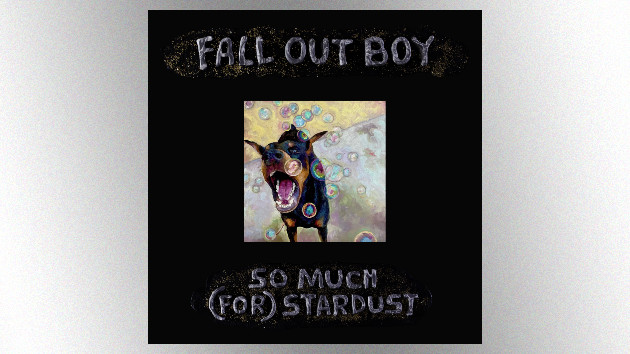Fall Out Boy enters into a renewed classic rock era with their latest album
By ADHITHI ANJALI — arts@theaggie.org
After the longest gap between albums since the group’s start, rock band Fall Out Boy dropped their first album since “MANIA” in 2018 on March 24. The group’s eighth album, “So Much (For) Stardust,” returns to heavier guitars and a grander punch-drunk sound but rejects nostalgic boundaries, and it is refreshing to watch a band as established as this one continue to embrace change and refuse the nihilistic urge to let the past define them.
The first two songs, “Love From the Other Side” and “Heartbreak Feels So Good,” were released as promotional singles for the album. Both open with cinematic orchestral notes that are cut through by electric guitar, setting a dreamy, summery rock tone that is dying to be heard. The music’s springtime release is apt for the album’s sense of renewal.
After Fall Out Boy’s last couple of years, a few themes were expected of their return: post-”MANIA” criticism, calls to ‘return to the good, old days,’ the spiraling of the pandemic and all to about the future, and how it is so suffocated by the past. From the fourth track, “Fake Out,” which has lyrics such as “We did it for futures that never came / And for pasts we’re never gonna change,” we see the suffocating stagnation of denying any meaning to the present moment. You can always try to break out of it, but then you lose any control you might have had.
In other ways, however, the album is a return to some of the band’s signature habits. Bassist Pete Wentz brought back his spoken word interludes in Track 10, “Baby Annihilation,” which have not been included on an album since 2008’s “Folie à Deux.” In “So Good Right Now” and “What a Time to be Alive,” longtime fans might be reminded of the soul dance-pop sound of Patrick Stump’s 2011 solo album, “Soul Punk.” And what would a Fall Out Boy album be without a good rock ballad like “Heaven, Iowa” to show off their theatrical side?
Midway through the album, Ethan Hawkes’s monologue from the 1994 film “Reality Bites” is set to the sound of a rising score in the song “The Pink Seashell, feat. Ethan Hawke.” He talks about his driving philosophy of life, all based on a pink seashell his father gives him. The song insinuates that life is ultimately empty, but you can fill it with meaning. The title track, which serves as the album’s closer, brings us around to the same question introduced in “Love From the Other Side,” which is “What would you trade the pain for?” It’s a matter of letting the meaninglessness of life define you or forging a life that’s worthwhile, in spite of the fear.
In a riff on old emo-punk expectations for the band, Fall Out Boy reconfigures these perceptions into a larger, cinematic composition with elements from their entire body of work. Of course, the album is not without corny lyrics or begrudging wit — but it’s the kind that makes you wonder how seriously you’re supposed to take it. It’s that teetering edge of meaninglessness, fun, the old and the new that marks this novel era of the band.
Written by: Adhithi Anjali — arts@theaggie.org




